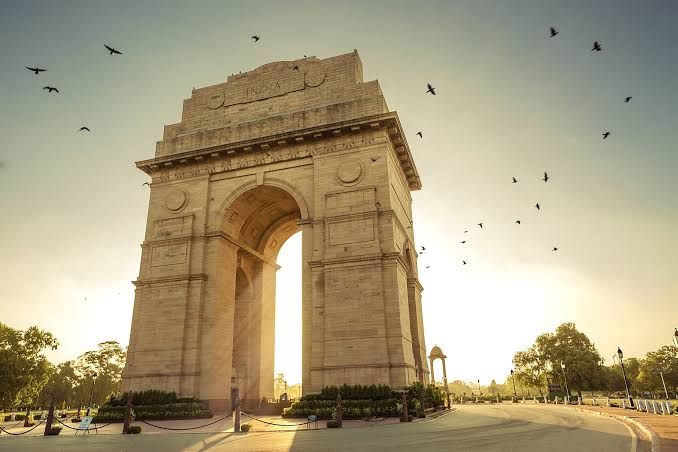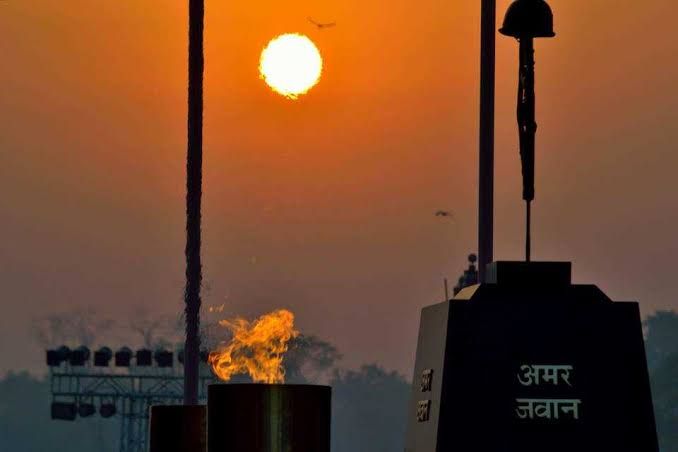Our Pride:India Gate
Jun 21, 2019 • 20 views

About India Gate:
Established: 10 February 1921
Unveiled: 12 February 1933
Designed by: Edwin Lutyens
India Gate is a remembrance to 70,000 warriors of the British Indian Army who kicked the bucket in the period 1914–21 in the First World War, in France, Flanders, Mesopotamia, Persia, East Africa, Gallipoli and somewhere else in the Near and the Far East, and the Second Anglo-Afghan War. 13,300 servicemen's names, including a few fighters and officers from the United Kingdom, are recorded on the gate. The India Gate, despite the fact that a war remembrance, brings out the compositional style of the triumphal curve like the Arch of Constantine, outside the Colosseum in Rome, and is frequently contrasted with the Arc de Triomphe in Paris, and the Gateway of India in Mumbai. It was planned by Sir Edwin Lutyens.
In 1972, after the Bangladesh Liberation war, a little straightforward structure, comprising of a dark marble plinth, with a switched rifle, topped by a war head protector, limited by four endless blazes, was worked underneath the taking off Memorial Archway. This structure, called Amar Jawan Jyoti, or the Flame of the Immortal Soldier, since 1971 has filled in as India's Tomb of the Unknown Soldier. India Gate is considered as a real part of the biggest war dedications in India.
The 42-meter (138-foot)- tall India Gate, remains on a low base of red Bharatpur stone and ascends in stages to an enormous embellishment.
Inscriptions:
TO THE DEAD OF THE INDIAN ARMIES WHO FELL AND ARE HONOURED IN FRANCE AND FLANDERS MESOPOTAMIA AND PERSIA EAST AFRICA GALLIPOLI AND ELSEWHERE IN THE NEAR AND THE FAR-EAST AND IN SACRED MEMORY ALSO OF THOSE WHOSE NAMES ARE HERE RECORDED AND WHO FELL IN INDIA OR THE NORTH-WEST FRONTIER AND DURING THE THIRD AFGHAN WAR.

13,218 war dead are honored by name on the India Gate. Because of security reasons access to peruse the names on the remembrance is limited.
Amar Jawan Jyoti:

Amar Jawan Jyoti, in 1971, it has filled in as India's Tomb of the Unknown Soldier. Amar Jawan Jyoti is kept an eye on nonstop by officers drawn from the three administrations of the Indian military. Wreaths are put at the Amar Jawan Jyoti on 26 January, by the Prime Minister of India, and Chiefs of Armed Forces; on Vijay Diwas, and on Infantry Day.
A place to re-energized feeling of patriotism among all the citizens of our country.
